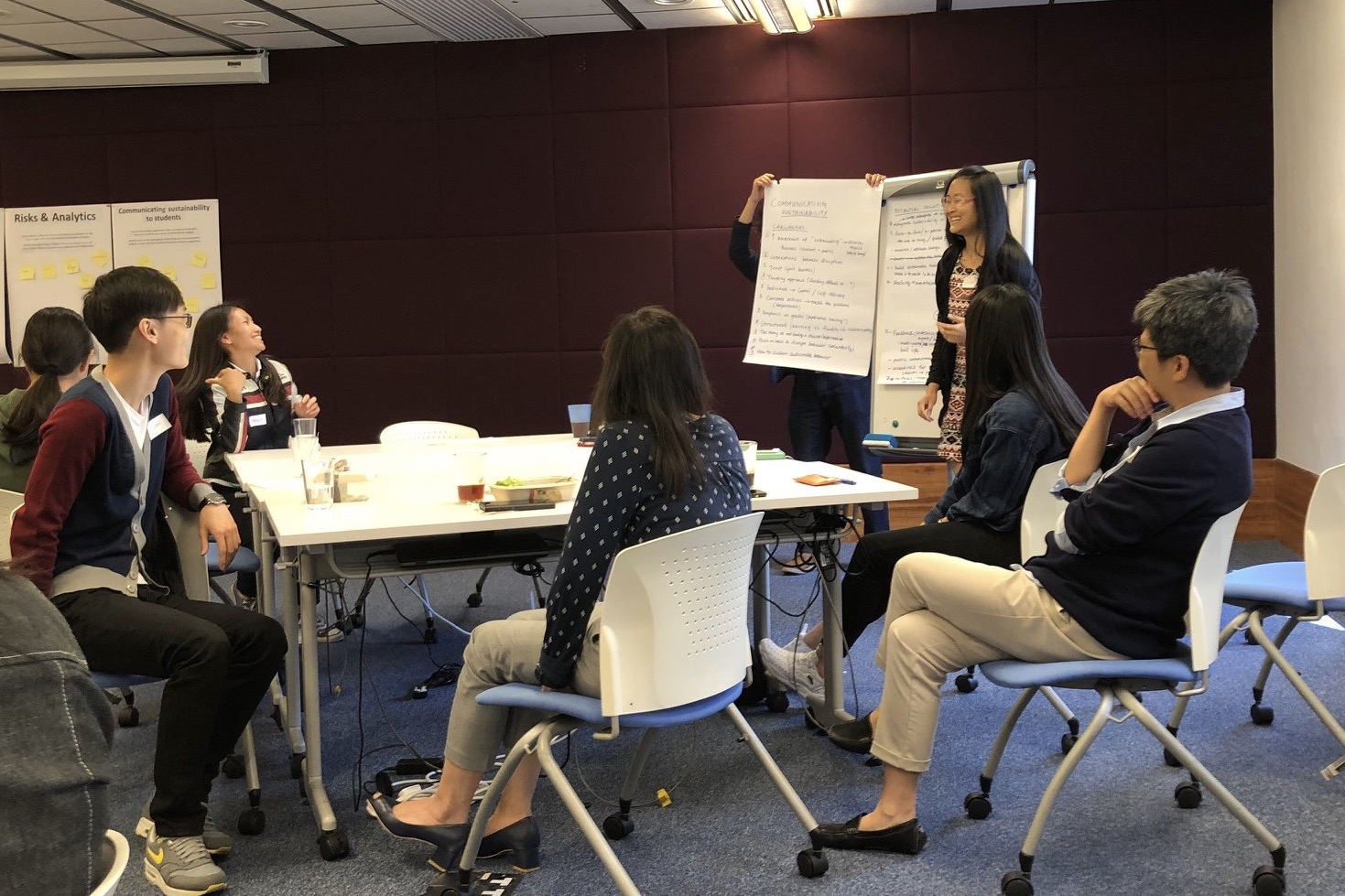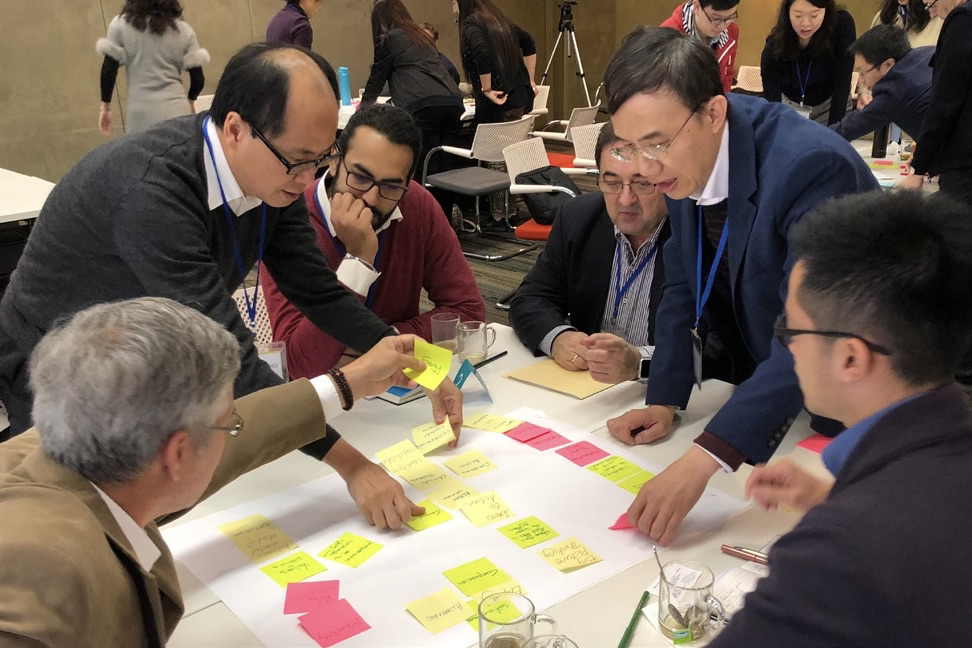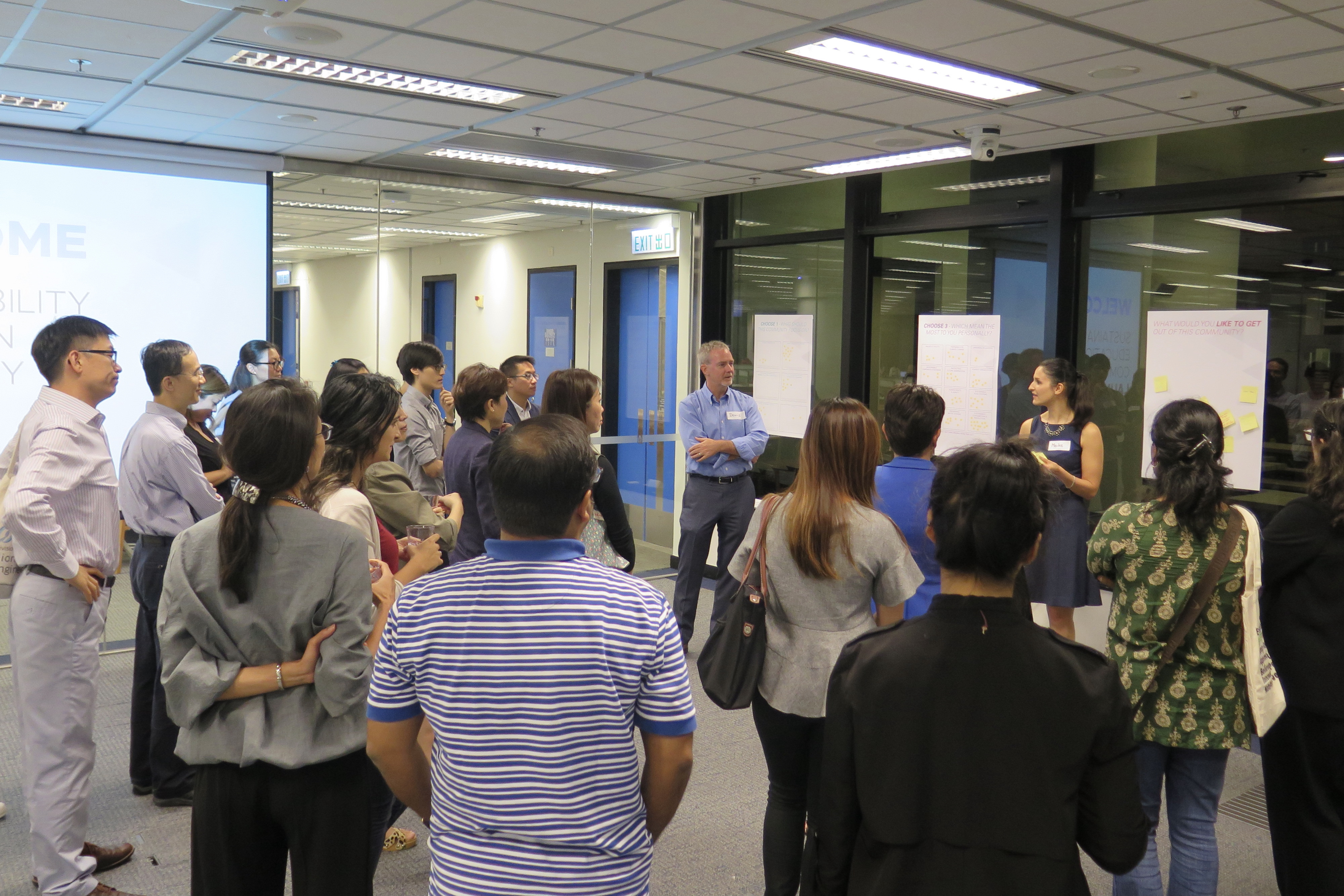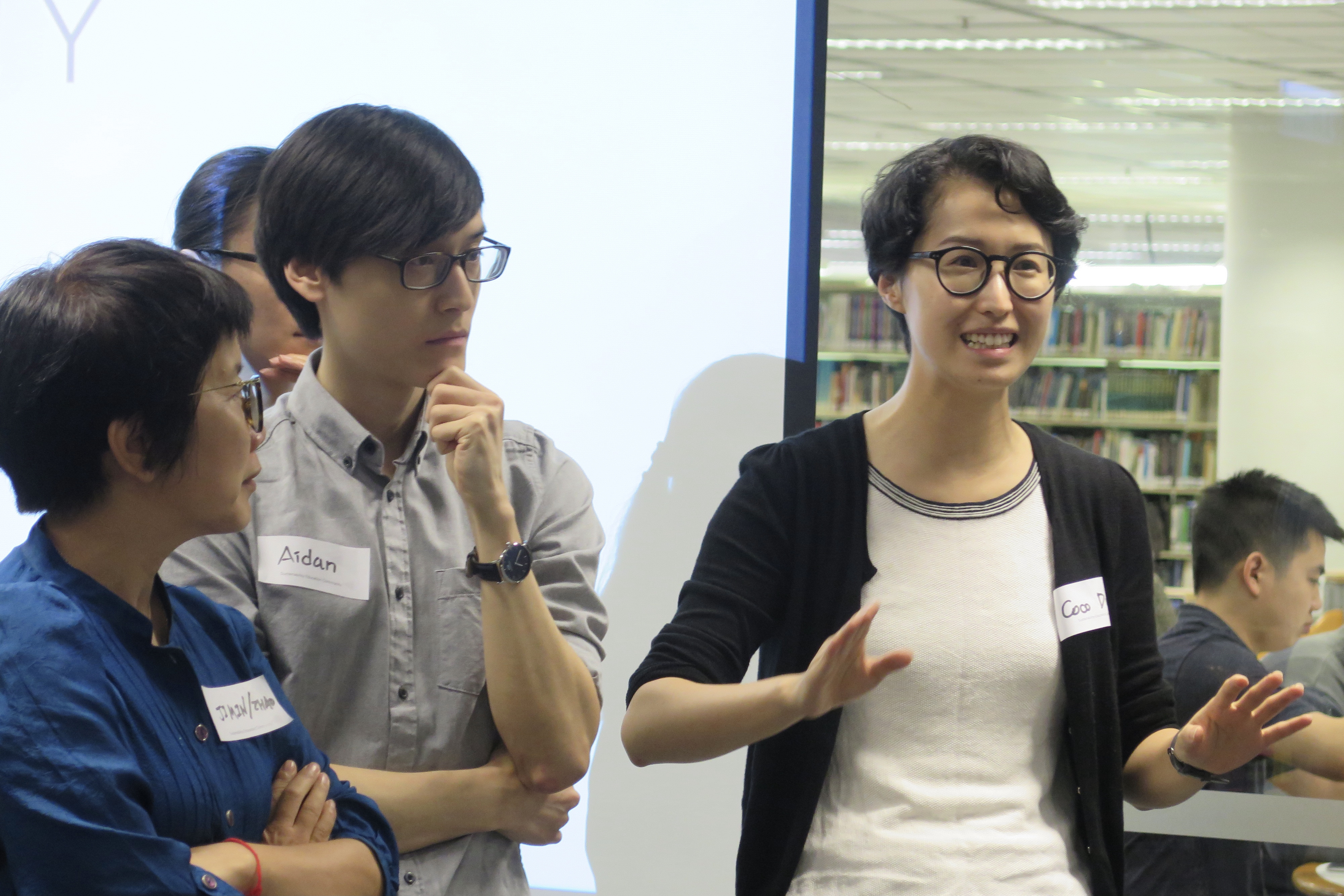Sustainability Education Community
Our Goal
The strategic vision for HKUST is to become a regional leader in sustainability education with a global outreach. As the overarching sustainability strategic goal, the University is committed to ensure that all students gain a solid understanding of sustainability concepts and graduate with sustainability skills and competencies that will prepare them for career challenges.
The HKUST Sustainability Education Advisory Group (SEAG) advises the University on sustainability education issues. Members were asked to share their views on the character of sustainability education. Members stressed several key themes and key words:
- inter-disciplinary
- inclusive
- multigenerational
- thinking across time and space
- building a common language of values
- identifying and solving problems
There was broad agreement that sustainability education is the foundation for preparing students to meet the challenge of sustaining human thriving within planetary boundaries. To achieve this, the SEAG agreed that sustainability education is built through the interplay of:
- Relevant knowledge and understanding of the issues, supported by…
- An appreciation for values and perspectives, creating the foundation to build…
- The skills and competencies necessary to address the challenge of a sustainable future
The three domains reinforce each other to build a comprehensive sustainability education framework that allows students to see the connections between what issues need to be addressed, the values that influence why we should act, and the skills that provide the insights on how to act.
Sustainability Education
The SEC will continue building the SE community within the University though social events and networking and will continue to develop an electronic resource base as a depository for teaching items of interest for the community. In the future, workshops will continue exploring the topics include:
- Detailed exploration of specific skills and competencies for development of lesson plans that can help build and embed those skills.
- Consideration of how to develop important, yet intangible attributes such as empathy, appreciation, and respect in the context of understanding sustainability.
- Deeper analysis of assessment models and frameworks




To promote a broader interest in sustainability education and to support faculty and staff engaged in this area, a community of practice – the Sustainability Education Community (SEC) – was formed in fall 2017, with over 50 faculty, staff and PG students engaged as COP members. The group has organized several workshops and networking occasions to help frame SE issues in the classroom and identify areas where educators can better incorporate sustainability principles and concepts. Through the SEC, HKUST was accepted as one of 14 global universities – and the first in Asia – to be designated a “Center for Teaching Sustainability Across the Curriculum” by the Association for the Advancement of Sustainability in Higher Education (AASHE).
In January 2019, SEC facilitated Hong Kong’s first ever workshop intended to help educators teach sustainability across the disciplines. This one-day interactive workshop, entitled Sustainability Across the Curriculum: The Hong Kong Context challenged participants to explore sustainability-related skills and competencies for learning within the Hong Kong context. Through a series of short presentations, lively discussions, group activities, and reflection, the workshop revealed ‘sustainability character development’ as a valuable crosscutting approach to overcoming the complexity of achieving consensus in defining, understanding, and teaching sustainability. Participants represented eight universities plus three NGOs, and came from diverse disciplinary backgrounds and varied in sustainability education experience - 16% of attendees were self-proclaimed experts, while the remaining 84% were looking for new ways to teach sustainability and to understand how it’s applied in different disciplines. The workshop revealed ‘sustainability character development’ as a valuable crosscutting approach to overcoming the complexity of achieving consensus in defining, understanding, and teaching sustainability.
In line with this initiative to expand teaching and learning of sustainability issues, the Division of Environment and Sustainability has previously introduced a Common Core course entitled SUST1000 - Introduction to Sustainability in Fall 2018. Flipped classrooms, blended learning and activity-based teaching methods were used to boost students’ interest and awareness of issues locally and globally and enhance their ability to address them. The teaching team for SUST1000 have also received the Common Core Teaching Excellent Award 2020, in recognition of their effort in promoting sustainability education.
The Division of Environment and Sustainability has also launched a new Minor Program in Sustainability with effect from Fall 2020. The Minor in Sustainability is designed to instil the knowledge, values and skills related to sustainability in our students, and fulfils our strategic commitment to foster interdisciplinary learning and sustainability education at HKUST. For more details on the Minor Program in Sustainability, please visit this website.
To foster a cross-disciplinary sustainability mindset among students and assist in building the wide-ranging outlook needed to tackle eco-issues, the Division of Environment and Sustainability has also developed a module on Life Cycle Thinking, a significant way to encourage responsible long-term decision-making, which has adopted for students across all engineering disciplines. In addition to that Life Cycle Assessment modules have been or are in the progress of implementation for selected majors in School of Engineering, such as Chemical and Civil engineering as preparation for final-year students in their capstone projects. More modules are planned to be developed for other disciplines.